Babies start communicating from the very moment they are brought into the world. From their first cry, babies communicate with you through non-verbal means until they begin talking between the ages of twelve to eighteen months or later. Initially, through crying and different sounds, your baby tells you that he/she is hungry, needs a diaper change, or is upset or feeling unwell.
Although it is challenging for you to initially interpret what your baby is trying to say, as time passes, you develop an understanding of what your baby needs by the different types of cries and sounds.
How do I improve my baby’s communication skills?
Your communication with your baby starts from the day he/she is born. As babies grow, they recognise human voices and sounds and start responding to you with sounds that may seem gibberish to you but perhaps make perfect sense to your baby! After trying multiple ways to encourage your baby to talk, your baby may start saying simple words such as "baba" and "dada" and understand simple requests like "waving bye-bye”.As your baby makes this journey, here are some ways to improve your baby’s communication:
- Babies love to watch faces, so talk to them even when they are too young to respond verbally.
- Sing nursery rhymes or songs to your baby with actions. This will help your baby remember words and enhance your baby’s language learning.
- Read books with large pictures and encourage your baby to turn the pages.
- Babies try to imitate you. Speak with them clearly and slowly so that they can observe your tongue and lip movements.
- Motor exercises such as lip massage, blowing bubbles, pursing, and smiling can be included in your baby’s playtime to help improve speech.
- Start pointing at things and calling them names, e.g., touch your and your baby’s ear and call out its name. Labelling everything helps your baby learn that everything has a name.
Will my baby understand when I talk?
While your baby continues auditory and speech development, the conversation between you and your little one gradually starts becoming mutual. Your baby responds to your gestures, smiles, words, and talk by making sounds. Slowly, after these milestones, try to research and find ways to encourage your baby to talk and speak words.
[Related - 1 Month Old Baby Milestones with Activities]
How should I praise my baby?
Praise your little one to encourage good behaviour. When your baby understands the praise and the associated behaviour, they will repeat the desired behaviour. Research studies indicate that babies whose efforts are praised are more motivated as they grow up.- When your child has done something good, show them that you are pleased by saying, "Thank you” with a smile. As you praise your child’s behaviour and point towards the praiseworthy action, your baby learns that what they have done is a good thing.
- Describe in words the behaviour you are praising, such as eating well, sitting or standing, so that your baby knows that their good behaviour is being praised.
How do I negotiate with my baby if she throws a tantrum?
Temper tantrums are seen when babies throw themselves to the floor, scream, or stomp to express their anger or strong emotions. They are commonly seen as babies turn one year old and typically occur when babies may be sick, hungry, tired, or upset.An appropriate response to a tantrum is important to prevent further tantrums. Responding calmly and trying to understand why your little ones are behaving in that manner is a good way to improve baby-parent communication and understanding.
You can use the following tactics to negotiate your way through a tantrum:
- Use a time-out and allow your baby to return to normal.
- Do not bribe your baby or he/she will continue to throw tantrums for the reward.
- Distract your child by giving them an alternative, such as a toy to play with.
- Ignore the tantrum calmly if it is not serious and forgive it soon after it is over.
- Be consistent in your approach.
- Do not get angry, as it will worsen the situation.
- Talk to your baby about their feelings.
Once the tantrum is over, hug your baby and reassure them of your love.
Communicating with your baby from day one not only helps in the development of your baby, but also makes them feel worthy of your attention and love. Talk to your paediatrician regarding healthy communication with your little one. Follow their advice and focus on positive parenting.
For more advice on improving and embedding essential skills like communication, download the BabyG App today!
References:
- KidsHealth. Communication and your newborn [2021].
- NHS. Help your baby learn to talk [2021].
- KidsHealth. Communication and your 8- to 12-month-old [2021].
- KidsHealth. Communication and your 1- to 3-month-old [2021].
- Baby Hearing. Using praise effectively [2021].
- Stanford University. Praise efforts in Children [2021].
- Stanford Children’s hospital. Temper tantrums [2021].
- Baby hearing. Dealing with tantrums [2021].
- KidsHealth. Temper tantrums [2021].



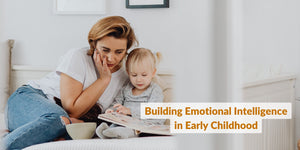
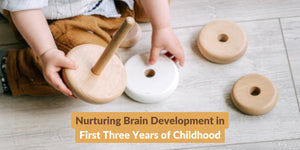

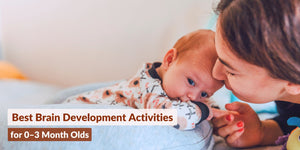

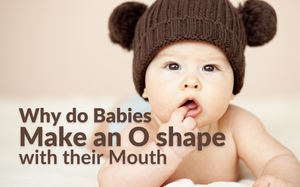
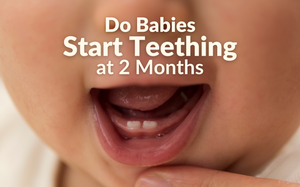
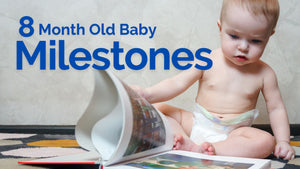
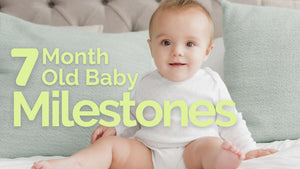

LEAVE A COMMENT